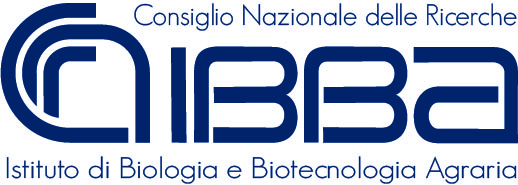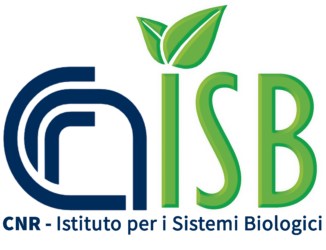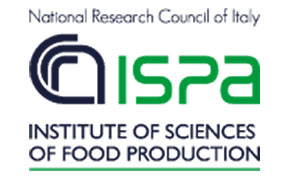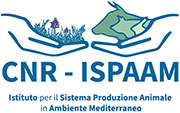






The Florence University Museum System (SMA) holds, exhibits and promotes the scientific, historical-scientific and historical-artistic collections of the Athenaeum. It includes the Natural History Museum (NHM) and two historical buildings, the Medicean Villa La Quiete complex and Galileo Galilei's Villa in Arcetri. Before the SMA establishment in 2018, the NHM (the most important naturalistic museum in Italy and one of the largest in Europe) had been among the founders of the Consortium of European Taxonomic Facilities (CETAF), being involved in many of its initiatives (e.g., the LifeWatch RI and the DiSSCo Prepare projects). It took part in the "Global Plant Initiative", one of the first projects providing open access to biological data.
Home Page: https://www.sma.unifi.it/

The Institute of Marine Sciences, National Research Council of Italy (CNR-ISMAR) conducts basic and applied research in biological, physical and chemical oceanography and marine geology with the aim of contributing both to the study of ocean processes and climate variability and to the development of systems/services for the observation, protection and sustainable management of the marine and coastal environment. CNR-ISMAR host the Herbarium ISMAR and collections of marine invertebrates from different Mediterranean and non-Mediterranean geographical areas.
Home Page: https://www.ismar.cnr.it/

The CNR-IRSA deals with aquatic and terrestrial ecosystems, taking into account their physical, chemical, and biological aspects. Studies focus on anthropogenic effects, such as water pollution, hydromorphological alterations, deposition of atmospheric pollutants, global changes, and alien species and their impact on biodiversity and ecosystem functioning. Research in marine algae, mainly from the Ionian Sea, is also carried out.
Home Page: https://www.irsa.cnr.it/

CNR-IBBA carries out research, technology transfer, and training activities in the area of plant, animal, and microbial biology to: expand knowledge of biological systems at the molecular, cellular, and organism levels and characterize their interaction with the surrounding environment; apply this knowledge for the genetic improvement of plants, animals and microorganisms, and biomolecule production; develop new tools for the nutritional and functional characterization of agricultural products, the identification of food pathogens, and food authentication; contribute to the conservation of biological resources.
Home Page: https://ibba.cnr.it/
The Institute of Biosciences and BioResources (CNR-IBBR) maintains several important in vivo and ex-situ research collections of hundreds of different organisms (crop species, crop wild relatives, forest and fruit trees, bacteria, fungi, nematodes, etc.) to study and preserve their functional biodiversity, and assessing their response to biotic and abiotic environmental factors. CNR-IBBR collections are part of the Italian network of biological research collections "BioMemory" (CNR/DiSBA) and are being indexed by the European Research Infrastructure "DiSSCo" (Distributed System of Scientific Collections).
Home Page: https://ibbr.cnr.it

The Institute for Bioeconomy (CNR-IBE) has developed skills and complementarity in the strategic sector of the bioeconomy aimed at using renewable bio-resources from the terrestrial biosphere to produce food, materials, and energy, with particular reference to the primary production sector (agriculture, forestry, fishing), as well as the industrial sectors of resource use and transformation, the agri-food sector, wood, and part of the chemical, biotechnology and energy industries. Research is focused on strategies for environmental sustainability and the use of resources, reduction of impacts, strengthening of resilience, and support for climate mitigation through an interdisciplinary approach aimed at understanding the factors that drive the function and the survival of anthropogenic systems, including meteorology, climatology, and oceanography.
Home Page: https://www.ibe.cnr.it/

IPSP studies plant response to biotic and abiotic stress factors to identify mechanisms of resistance and adaptation to promote plant health in agriculture and forestry. This implies strengthening the use of natural enemies and beneficial microorganisms in integrated pest management, selecting and recovering valuable plant germplasm, identifying bio-molecules of agricultural or industrial interest, and ultimately promoting sustainable and environmentally friendly growth.
Home Page: http://www.ipsp.cnr.it/

CNR-ISA's research activities evaluate food quality and safety and investigate the relationships between food and health. Technology transfer is an essential part of the CNR-ISA mission.
Home Page: https://www.isa.cnr.it/

The ISB studies the chemical, physical, and bio-molecular mechanisms that regulate the organization and functions of biological systems. It promotes the acquisition of knowledge with an interdisciplinary approach, which, by integrating skills in chemistry, biology, microbiology, pedology, and systems analysis, aims to understand complex biological systems for their use in the bio-agri-food sector. The activities of the ISB-CNR are aimed at the production and sharing of knowledge and the creation of multidisciplinary mechanisms involving projects and research programs in complementary fields, such as: Quality, safety, and traceability of foods; Medical plants; Micro and Nanotechnologies; Plant sciences; Protection of natural and artificial ecosystems and cultural heritage; Free theme research.
Home Page: http://www.isb.cnr.it/

The Institute of Food Production Sciences (CNR-ISPA) is a reality of excellence, recognized internationally, and operates in the research, innovation, and technological transfer sectors to improve the quality and safety of agri-food products. ISPA-CNR, by carrying out synergistic actions between scientific research and production with the transfer of scientific acquisitions, supports technological innovation paths of small, medium, and large national and foreign companies in the agri-food sector. In particular, in the field of food safety, projects are underway in which innovative methodologies are developed for the determination of mycotoxins, toxigenic fungi, pathogenic microorganisms, and allergens in raw materials and foods, such as cereals, wine, pasta, milk, food for childhood and dried fruit.
Home Page: https://www.ispa.cnr.it/

The Institute for the Animal Production System in the Mediterranean Environment takes an interdisciplinary interest in animal production research themes, using a systemic approach as well as knowledge and methods from different cultural areas (biology, physiology, molecular genetics, agronomy, cytogenetics, biochemistry, proteomics, nutrition, microbiology, forage cropping, and applied mathematics).
Home Page: https://www.ispaam.cnr.it/


